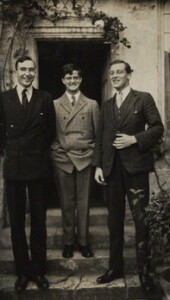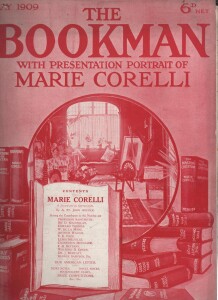George Frederick Scotson-Clark
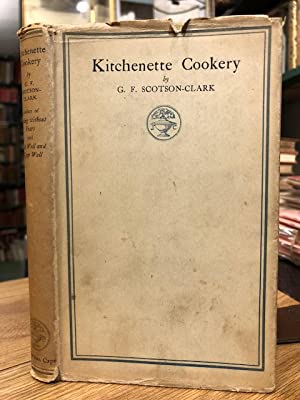
Some cooks may be artists in their own way, but artists are rarely cooks. But if this little book, Eating without Fears, a minor best-seller in 1924 ( we have a third edition which we found in the Jot 101 archive at HQ) is any indication, the fin de siecle artist, G. F. Scotson –Clark was certainly both, albeit in a very minor way.
Scotson-Clark, the son of a famous organists and composer was the same age as his fellow illustrator and friend Aubrey Beardsley, and was in the same class with him at Brighton Grammar School. But while Beardsley left school to pursue a brilliant but short career, his friend decided to try his luck in the City ( his biographers described him as a ‘ businessman ‘), only to change direction at the age of twenty when he emigrated to the United States. Here he may well have continued as a businessman for all we know, but what we do know is that his natural talent for drawing ( he appears to have been self-taught) saw him supplying art work for several American newspapers and magazines, including the New York Sunday World. He also designed posters for The Outing and worked as a stage and costume designer.
Then, in 1897, aged twenty-five, Scotson-Clark returned to England, where he remained until his death. He continued to design posters, mainly for the theatre, and his interest in the Music Hall is strongly evident in perhaps his best-known ( and certainly most expensive book), The Halls, which appeared in 1906. Scotson-Clark, though talented as a graphic artist , lacked the amazing originality of Beardsley, hence perhaps his comparatively low-profile as an illustrator today. His plates for The Halls, for instance, are strongly influences by the ‘ Beggarstaff Brothers ‘ who were very popular at around the same time.
Continue reading

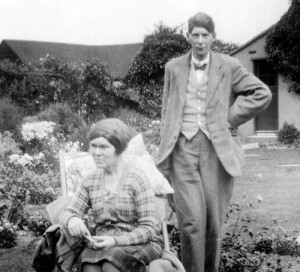 It is in The Last of Spring, one of Rupert Croft-Cooke’s many autobiographical volumes that one finds an account of the author’s experience of renting one of the Cornish bungalows built for writers by the eccentric spiritual medium and author, Mrs A.C. Dawson Scott, in the early 1930s.
It is in The Last of Spring, one of Rupert Croft-Cooke’s many autobiographical volumes that one finds an account of the author’s experience of renting one of the Cornish bungalows built for writers by the eccentric spiritual medium and author, Mrs A.C. Dawson Scott, in the early 1930s.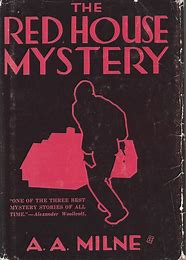
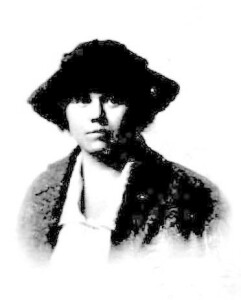
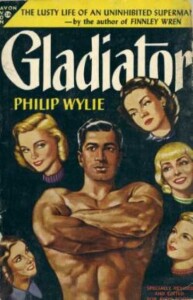
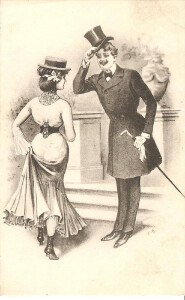 If Everybody’s Best Friend ( 1939) is to be believed, people were still debating the propriety of men giving up seats to women, whether or not it was necessary to doff a hat to a lady or where a man should walk on a pavement when accompanying a lady, as they had done for centuries before and perhaps still do. On the question of who should pay on a night out, to an earlier generation brought up before the advent of Women’s Liberation, there is no question that a man should pay for everything. Notice that it is tacitly assumed that once the man and woman are married, it is certainly the husband who must pay for a meal and for seats in a theatre or cinema, even though the wife may have an income from her job. But have things changed that much ?
If Everybody’s Best Friend ( 1939) is to be believed, people were still debating the propriety of men giving up seats to women, whether or not it was necessary to doff a hat to a lady or where a man should walk on a pavement when accompanying a lady, as they had done for centuries before and perhaps still do. On the question of who should pay on a night out, to an earlier generation brought up before the advent of Women’s Liberation, there is no question that a man should pay for everything. Notice that it is tacitly assumed that once the man and woman are married, it is certainly the husband who must pay for a meal and for seats in a theatre or cinema, even though the wife may have an income from her job. But have things changed that much ?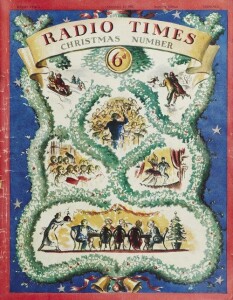


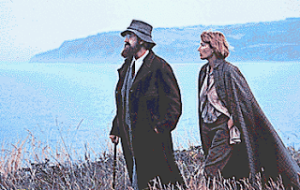 In part one we looked at the way John Thaw tried to disguise a leg injury he had sustained as a teenager. Later on in his audition for RADA he had played Richard III with a limp and as Morse he had tried to disguise his limp. But some actors can easily affect a certain gait for dramatic affect. Both Alec Guinness and Laurence Olivier maintained that once they had got the walk right the rest of the role fell into place. In an adaptation of Ivy Compton Burnett’s ‘A Family and a Fortune’ Guinness had to leave a room to get out into the cold. The way he flung a scarf round his neck and trod stutteringly before leaving told you everything you needed to know about the climatic conditions and preparing to brave them.
In part one we looked at the way John Thaw tried to disguise a leg injury he had sustained as a teenager. Later on in his audition for RADA he had played Richard III with a limp and as Morse he had tried to disguise his limp. But some actors can easily affect a certain gait for dramatic affect. Both Alec Guinness and Laurence Olivier maintained that once they had got the walk right the rest of the role fell into place. In an adaptation of Ivy Compton Burnett’s ‘A Family and a Fortune’ Guinness had to leave a room to get out into the cold. The way he flung a scarf round his neck and trod stutteringly before leaving told you everything you needed to know about the climatic conditions and preparing to brave them.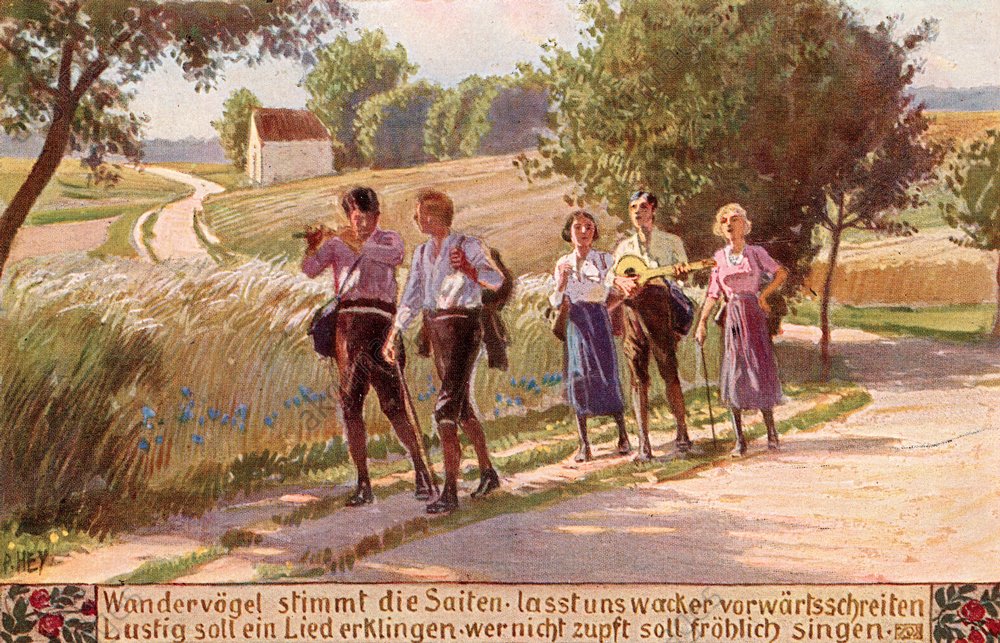
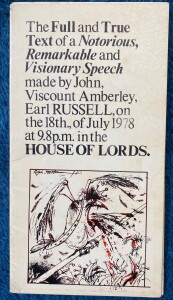 Open Head Press about 1980 at 50p. It came from the estate of the Dutch radical Simon Vinkenoog whose birthday (18th July) was the same day as this revolutionary (not to say crazy) speech was given. It has the full text of Earl Russell’s 1978 maiden speech to the House of Lords.
Open Head Press about 1980 at 50p. It came from the estate of the Dutch radical Simon Vinkenoog whose birthday (18th July) was the same day as this revolutionary (not to say crazy) speech was given. It has the full text of Earl Russell’s 1978 maiden speech to the House of Lords. 